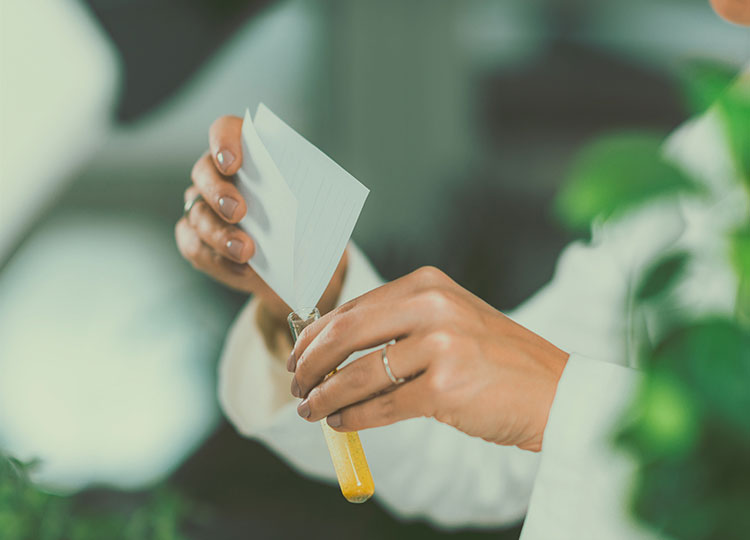
Eight Plant Extracts That Can Relieve Depression
2022.09.08
Today, more and more people are troubled by depression. In addition to conventional psychological communication therapy, antidepressant drugs are relatively common, but most drugs have side effects and certain drug resistance, which will cause harm to human health. Negative Effects. Therefore, it has become a trend to choose natural plant extracts for relief. These drugs are safe and have few side effects. With the deepening of research, natural plant extracts will occupy half of the sky in antidepressant in the future.

Anacyclus Pyrethrum Root Extract
Anacyclus Pyrethrum,also known as Akarkara, is a unique Ayurvedic herb from India. It is characterized by aromatic roots and a strong taste. It promotes the flow of saliva and a burning taste, and is often used in areas such as Southeast Asia to treat toothaches, sore throats and colds. It has been used since ancient times to help the nervous system and also to treat premature ejaculation and aphrodisiac.
In a recent study, researchers set out to determine whether a anacycli pyrethri radix (APRE) extract could have an effect on depression in mice. They studied mice suffering from depression, subjected them to a series of tests designed to observe changes in their behavior, and analyzed their blood.
The researchers determined that the Anacyclus Pyrethrum Root Extract does have antidepressant effects, which they believe are due to the extract's cortisol-reducing effects and ability to promote 5-HT neurological function.
Saffron Extract
Saffron extract, is a medicinal herb. The main components are saffron acid and crocin. It has sedative, expectorant and antispasmodic effects, and can be used for the treatment of stomach diseases, menstrual regulation, measles, fever, yellow gallbladder, hepatosplenomegaly, etc.
Saffron extract has been shown to be effective in several clinical trials as a natural antidepressant. Crocin and crocin, found in the plant's petals and stigmas, are thought to be responsible for this effect. Various studies have shown that it is as effective as prescription drugs such as Prozac.
5-HTP
5-Hydroxytryptophan (5-HTP) is mainly extracted from African Griffonia seeds, and it is also an essential amino acid produced by the brain, which can control the content of serotonin (also known as serotonin, 5-HT) in the human body. 5-HT is a neurotransmitter in the brain that can produce pleasant emotions and can affect almost every aspect of brain activity, from regulating mood, energy, memory and even shaping the outlook on life. 5-HTP is the predecessor of 5-HT. It generates 5-HT under the action of decarboxylase, which can increase the production of serotonin in brain cells, thereby increasing the content of 5-HT. In recent years, the increase in the demand for 5-HTP is mainly caused by changes in people's lifestyles, incorrect eating habits and hormone secretion disorders, people's mental stress is gradually increasing, so the demand for natural ingredients to fight depression is also increasing. Importantly, as a natural plant extract for depression, 5-HTP has advantages over tryptophan because most tryptophan is chemically synthesized. According to the latest data from Transparency Market Research, the 5-HTP market reached US$31.7 million as early as 2012, and is expected to reach US$51.4 million in 2019, with a compound annual growth rate of 7.1%. With the growing demand for brain health and sleep, 5-HTP will be more widely used in the world in the future.
Hypericum perforatum extract
Hypericum perforatum belongs to the family Garcinia cambogia and the genus Hypericum, also known as St. John's wort in the West. Several studies have shown that Hypericum perforatum can achieve antidepressant effects by inhibiting the recovery of 5-HT and monoamine oxidase, acting on dopamine and norepinephrine. Hypericin contained in Hypericum perforatum is the main component for relieving depression, among which the content of petals is the highest. In Germany, Hypericum perforatum is used in 40% of all antidepressant drugs, and its effect is similar to Prozac (the more common antidepressant). A 2016 study involving 960 adults in 14 studies showed that a daily intake of 500 to 1,800 mg of Hypericum perforatum extract can significantly reduce depression, as much as prescription antidepressants. The study found that Hypericum perforatum extract improves mood by reducing the body's reuptake of serotonin, dopamine and norepinephrine.
Omega-3s
Omega-3s are ingredients that support brain development and cognitive health, and promote the metabolism of vital fatty acids that are active-balanced in the body's internal environment. A joint UK-Iranian study in 2008 was the first to find that omega-3s have antidepressant effects, with an 81% effect when combined with antidepressants. In April 2016, the globally authoritative DHA/EPA Fatty Acids Organization (GOED) found a strong link between consuming omega-3s and lowering major depressive disorders, based on 13 trials involving 1,233 subjects. derived. There was a correlation between overall benign improvement in depression and supplementation with omega-3s, especially with high doses of EPA. Additionally, supplementation with omega-3s may reduce the risk of postpartum depression. With the deepening of research, it will play an important role in the global public health of depression.
Broccoli Extract
A study recently released by the Social Mental Health Education Research Center of Chiba University in Japan showed that broccoli-derived sulforaphane (SFN) has the effect of preventing depression and inhibiting the recurrence of depression. The research team used experimental mice as the object and found that normal healthy mice could drink sugar water with a concentration of 70%-80%, while depressed mice under stress could only drink about 50% sugar water. But if the mice were fed SFN before they fell into a state of depression, the depressive mice drank the same sweet water as normal experimental mice, thus avoiding the appearance of depressive symptoms. In addition, the researchers administered SFN precursor substances to young mice and confirmed that their stress resistance was significantly increased.
Rhodiola rosea extract
Rhodiola is a perennial herb or subshrub of the genus Rhodiola L, often succulent. Its roots and rhizomes can be used as medicine, and sometimes the whole plant can also be used. Modern research shows that Rhodiola has antioxidant, increased exercise endurance, improved immunity, anti-depression and whitening effects. Animal experiments have shown that salidroside, an extract of Rhodiola rosea, can increase the transmission speed of serotonin precursors tryptophan and 5-HTP in the brain, and unstable serotonin often causes low mood and depression. An article published in Phytomedicine in 2015 pointed out that Rhodiola rosea extract can relieve the condition of patients with mild to moderate depression (MDD). In addition, Rhodiola can improve sleep quality by protecting the nervous system from oxidative stress damage.
Curcumin
In 2013, a study by the Baylor Institute in the United States showed for the first time that curcumin is more effective in relieving mild to moderate depression, and its antidepressant effect is similar to that of fluoxetine prescription drugs, and there are no adverse reactions. As research continues to deepen, a 2014 Australian study found that curcumin may relieve symptoms of major depression, especially atypical depression. The study suggests that the mechanism of action of curcumin is related to its powerful anti-inflammatory properties, which may affect the activities of biological mechanisms related to depression, including monoamine activity, immune inflammation, oxidative and nitrosative stress pathways, and hypothalamic-pituitary-adrenal Axis (HPA). Larger-scale, longer-term, and different-dose studies are needed to verify the effect of curcumin on depression in the future.











